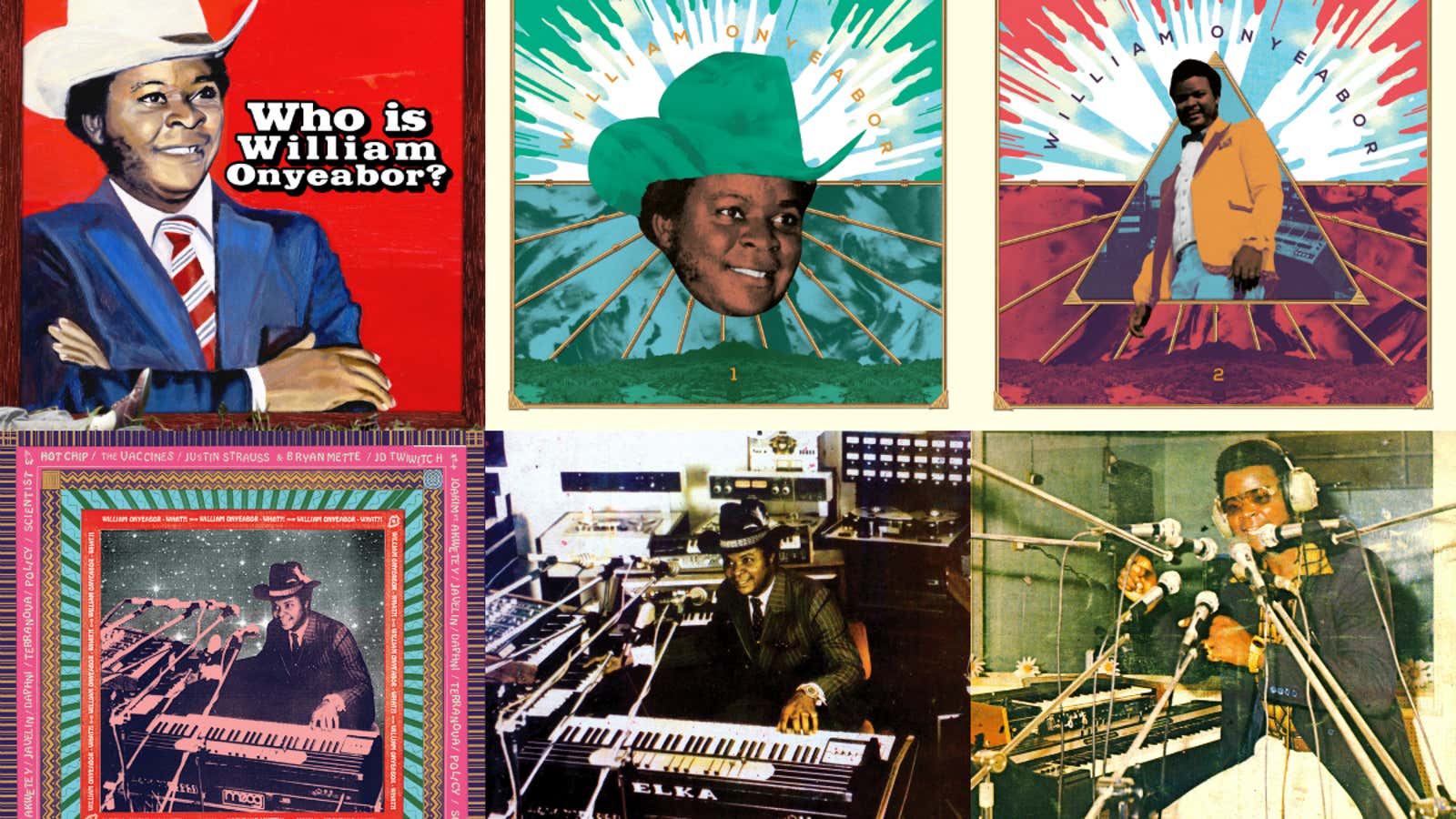“Better Change Your Mind” was this writer’s introduction to the enigmatic talent that was William Onyeabor, who died on Tuesday at the age of 70. Eight and a half minutes of musical magic that managed to be equal parts lo-fi funk and hi-tech synth futurism. Imagine the surprise on this then teenage face to discover that he was one of ‘ours’ as well—a Nigerian from Enugu State, in the south eastern part of the country.
The writer Marlon James expressed his dismay once that people thought Jamaican music was all “Nyabinghi drums and chanting about Jah” when the people of that island were just as excited about disco, or country & western as any one else in the world.
One could say the same about the perception of Nigerian music. It’s always to easy to slip into the lazy world view that the music is all talking drums and pedal steel guitar, but the eight albums of William Onyeabor that mixed the guitars and brass of traditional afrobeat and highlife, with a kind of synthesized proto-techno, were proof that this really wasn’t the case.
How rare it is to maintain an air of mystery in these times of information overload? William Onyeabor the man managed to achieve just that, shunning almost all interviews, and refusing to elaborate on his life, inspiration, musical methods, or anything. Sure, his album covers presented a confident image of a musician at play: here in evening wear and top hat, like some sort of dapper Yaphet Kotto, on “Great Lover”, or here—beaming from behind a row of microphones on the peerless “Atomic Bomb”.
As far as the actual music was concerned, the flamboyant funk of “Body & Soul”, “Good Name” and “Fantastic Man” certainly gave no impression of a reclusive individual who would actively shy away from attention. But that’s exactly what he did, truly letting the music do the walking and talking.
Here is Onyeabor’s ‘Fantastic Man’ performed on The Tonight Show by David Byrne with another pair of Nigerian legends, The Lijadu Sisters.
For a new generation of hip music lovers permanently on the look out for a chance of musical oneupmanship, this anonymity was a blessing—Onyeabor was hidden in plain sight, behind his body of work, with enough mystery around him for people to construct their own myths. He disappeared behind the Iron Curtain to go to film school, or to London to study law. He had renounced music for Christianity. Some of it was true, most of it wasn’t, depending on who you ask, and on what day.
When David Byrne’s Luaka Bop label went to find him a few years ago, the head of the label came away none the wiser, but with permission to reissue some of his best music on their fantastic Who Is William Onyeabor? compilation – changing the title at the last minute from This Is William Onyeabor to reflect some of the intrigue surrounding the reclusive musician.
The mark of a truly great compilation is when it is viewed as an LP itself. Who Is William Onyeabor? did that, bringing a 70’s enigma to a 90s audience and shining a light on a man. Although he never commented on his new found attention, we can only hope that this fantastic man found some satisfaction on having one more moment in the sun, before disappearing into the shadows for good, just two years later.
It’s hard to know how well the album did in actual sales, but the standing of the man and the weight of the compilation can be measured by the caliber of musicians who fell over themselves to be included in the tribute concerts that took place.
